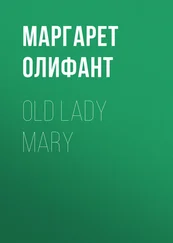Маргарет Олифант - Brownlows
Здесь есть возможность читать онлайн «Маргарет Олифант - Brownlows» — ознакомительный отрывок электронной книги совершенно бесплатно, а после прочтения отрывка купить полную версию. В некоторых случаях можно слушать аудио, скачать через торрент в формате fb2 и присутствует краткое содержание. Жанр: foreign_prose, literature_19, foreign_antique, на английском языке. Описание произведения, (предисловие) а так же отзывы посетителей доступны на портале библиотеки ЛибКат.
- Название:Brownlows
- Автор:
- Жанр:
- Год:неизвестен
- ISBN:нет данных
- Рейтинг книги:5 / 5. Голосов: 1
-
Избранное:Добавить в избранное
- Отзывы:
-
Ваша оценка:
- 100
- 1
- 2
- 3
- 4
- 5
Brownlows: краткое содержание, описание и аннотация
Предлагаем к чтению аннотацию, описание, краткое содержание или предисловие (зависит от того, что написал сам автор книги «Brownlows»). Если вы не нашли необходимую информацию о книге — напишите в комментариях, мы постараемся отыскать её.
Brownlows — читать онлайн ознакомительный отрывок
Ниже представлен текст книги, разбитый по страницам. Система сохранения места последней прочитанной страницы, позволяет с удобством читать онлайн бесплатно книгу «Brownlows», без необходимости каждый раз заново искать на чём Вы остановились. Поставьте закладку, и сможете в любой момент перейти на страницу, на которой закончили чтение.
Интервал:
Закладка:
CHAPTER II.
SARA
Mr. Brownlow had one son and one daughter—the boy, a very good natured, easy-minded, honest sort of young fellow, approaching twenty-one, and not made much account of either at home or abroad. The daughter was Sara. For people who know her, or indeed who are at all acquainted with society in Dartfordshire, it is unnecessary to say more; but perhaps the general public may prefer a clearer description. She was the queen of John Brownlow’s house, and the apple of his eye. At the period of which we speak she was between nineteen and twenty, just emerging from what had always been considered a delicate girlhood, into the full early bloom of woman. She had too much character, too much nonsense, too many wiles, and too much simplicity in her, to be, strictly speaking, beautiful; and she was not good enough or gentle enough to be lovely. And neither was she beloved by all, as a heroine ought to be. There were some people who did not like her, as well as some who did, and there were a great many who fluctuated between love and dislike, and were sometimes fond of her, and sometimes affronted with her; which, indeed, was a very common state of mind with herself. Sara was so much a girl of her age that she had even the hair of the period, as the spring flowers have the colors of spring. It was light-brown, with a golden tint, and abundant as locks of that color generally are; but it can not be denied that it was darker than the fashionable shade, and that Sara was not above being annoyed by this fact, nor even above a vague and shadowy idea of doing something to bring it to the correct tint; which may rank as one of the constantly recurring proofs that young women are in fact the least vain portion of the creation, and have less faith in the efficacy of their natural charms than any other section of the race. She had a little rosebud mouth, dewy and pearly, and full eyes, which were blue, or gray, or hazel, according as you looked at them, and according to the sentiment they might happen to express. She was very tall, very slight and flexible, and wavy like a tall lily, with the slightest variable stoop in her pretty shoulders, for which her life had been rendered miserable by many well-meaning persons, but which in reality was one of her charms. To say that she stooped is an ugly expression, and there was nothing ugly about Sara. It was rather that by times her head drooped a little, like the aforesaid lily swayed by the softest of visionary breezes. This, however, was the only thing lily-like or angelic about her. She was not a model of any thing, nor noted for any special virtues. She was Sara. That was about all that could be said for her; and it is to be hoped that she may be able to evidence what little bits of good there were in her during the course of this history, for herself.
“Papa,” she said, as they sat together at the breakfast-table, “I will call for you this afternoon, and bring you home. I have something to do in Masterton.”
“Something to do in Masterton?” said Mr. Brownlow; “I thought you had got every thing you could possibly want for three months at least when you were in town.”
“Yes,” said Sara, “every thing one wants for one’s bodily necessities—pins and needles and music, and all that sort of thing—but one has a heart, though you might not think it, papa; and I have an idea that one has a soul.”
“Do you think so?” said her father, with a smile; “but I can’t imagine what your soul can have to do in Masterton. We don’t cultivate such superfluities there.”
“I am going to see grandmamma,” said Sara. “I think it is my duty. I am not fond of her, and I ought to be. I think if I went to see her oftener perhaps it might do me good.”
“O! if it’s only for grandmamma,” said young John, “I go to see her often enough. I don’t think you need take any particular trouble to do her good.”
Upon which Sara sighed, and drooped a little upon its long stem her lily head. “I hope I am not so stupid and conceited as to think I can do any body good,” she said. “I may be silly enough, but I am not like that; but I am going to see grandmamma. It is my duty to be fond of her, and see after her; and I know I never go except when I can’t help it. I am going to turn over a new leaf.”
Mr. Brownlow’s face had been overshadowed at the first mention of the grandmother, as by a faint mist of annoyance. It did not go so far as to be a cloud. It was not positive displeasure or dislike, but only a shade of dissatisfaction, which he expressed by his silence. Sara’s resolutions to turn over a new leaf were not rare, and her father was generally much amused and interested by her good intentions; but at present he only went on with his breakfast and said nothing. Like his daughter, he was not fond of the grandmamma, and perhaps her sympathy with his own sentiments in this respect was satisfactory to him at the bottom of his heart; but it was not a thing he could talk about.
“There is a great deal in habit,” said Sara, in that experienced way which belongs to the speculatist of nineteen. “I believe you can train yourself to any thing, even to love people whom you don’t love by nature. I think one could get to do that if one was to try.”
“I should not care much for your love if that was how it came,” said young John.
“That would only show you did not understand,” said Sara, mildly. “To like people for a good reason, is not that better than liking them merely because you can’t help it? If there was any body that it suited papa, for instance, to make me marry, don’t you think I would be very foolish if I could not make myself fond of him? and ungrateful too?”
“Would you really do as much for me, my darling?” said Mr. Brownlow, looking up at her with a glimmer of weakness in his eyes; “but I hope I shall never require to put you to the test.”
“Why not, papa?” said Sara, cheerfully. “I am sure it would be a much more sensible reason for being fond of any body that you wished it, than just my own fancy. I should do it, and I would never hesitate about it,” said the confident young woman; and the father, though he was a man of some experience, felt his heart melt and glow over this rash statement with a fond gratification, and really believed it, foolish as it was.
“And I shall drive down,” said Sara, “and look as fine as possible; though, of course, I would far rather have Meg out, and ride home with you in the afternoon. And it would do Meg a world of good,” she added, pathetically. “But you know if one goes in for pleasing one’s grandmamma, one ought to be content to please her in her own way. She likes to see the carriage and the grays, and a great noise and fuss. If it is worth taking the trouble for at all, it is worth doing it in her own way.”
“ I walk, and she is always very glad to see me,” said John, in what must be allowed was an unpleasant manner.
“Ah! you are different,” said Sara, with a momentary bend of her graceful head. And, of course, he was very different. He was a mere man or boy—whichever you prefer—not in the least ornamental, nor of very much use to any body—whereas Sara—But it is not a difference that could be described or argued about; it was a thing which could be perceived with half an eye. When breakfast was over, the two gentlemen went off to Masterton to their business; for young John had gone into his father’s office, and was preparing to take up in his turn the hereditary profession. Indeed, it is not clear that Mr. Brownlow ever intended poor Jack to profit at all by his wealth, or the additional state and grandeur the family had taken upon itself. To his eyes, so far as it appeared, Sara alone was the centre of all this magnificence; whereas Jack was simply the heir and successor of the Brownlows, who had been time out of mind the solicitors of Masterton. For Jack, the brick house in the High Street waited with all its old stores; and the fairy accessories of their present existence, all the luxury and grace and beauty—the grays—the conservatories—the park—the place in the country—seemed a kind of natural appanage to the fair creature in whom the race of Brownlow had come to flower, the father could not tell how; for it seemed strange to think that he himself, who was but a homely individual, should have been the means of bringing any thing so fair and fine into the world. Probably Mr. Brownlow, when it came to making his will, would be strictly just to his two children; but in the mean time, in his thoughts, that was, no doubt, how things stood; and Jack accordingly was brought up as he himself had been, rather as the heir of the Brownlows’ business, their excellent connection and long-established practice, than as the heir of Brownlows—two very different things, as will be perceived.
Читать дальшеИнтервал:
Закладка:
Похожие книги на «Brownlows»
Представляем Вашему вниманию похожие книги на «Brownlows» списком для выбора. Мы отобрали схожую по названию и смыслу литературу в надежде предоставить читателям больше вариантов отыскать новые, интересные, ещё непрочитанные произведения.
Обсуждение, отзывы о книге «Brownlows» и просто собственные мнения читателей. Оставьте ваши комментарии, напишите, что Вы думаете о произведении, его смысле или главных героях. Укажите что конкретно понравилось, а что нет, и почему Вы так считаете.












